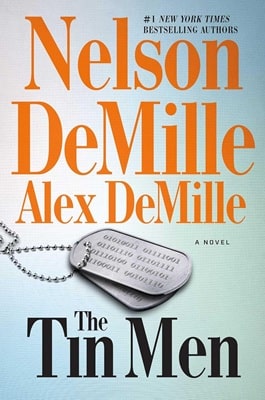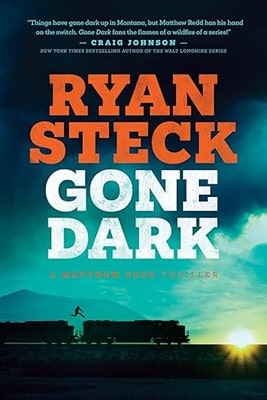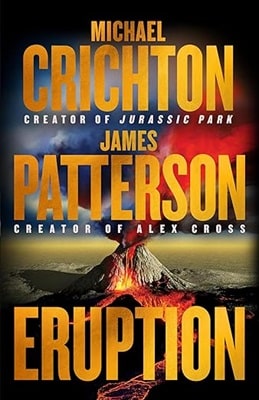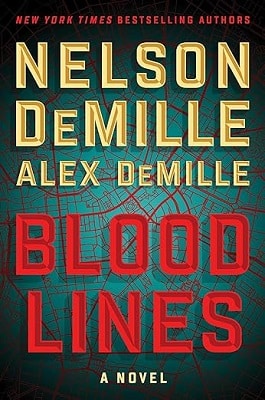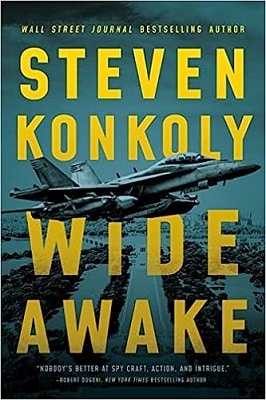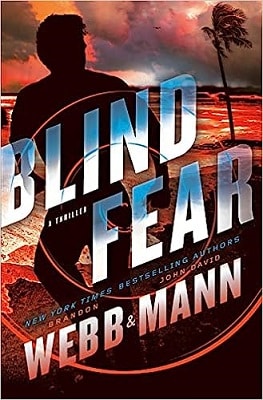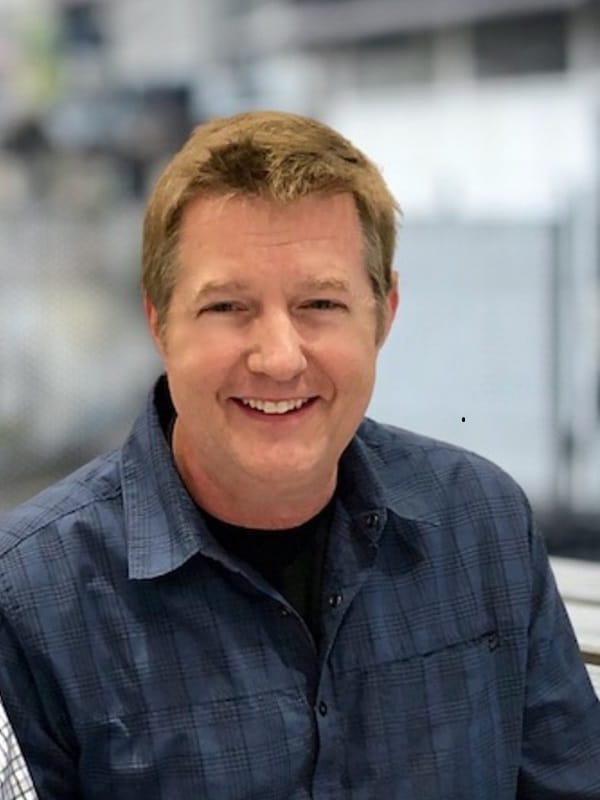
Jeffrey Wilson has worked as an actor, firefighter, paramedic, jet pilot, and diving instructor, as well as a vascular and trauma surgeon. He served in the US Navy for fourteen years and made multiple deployments as a combat surgeon with an East Coast–based SEAL Team. He and his wife, Wendy, live in Southwest Florida with their four children.
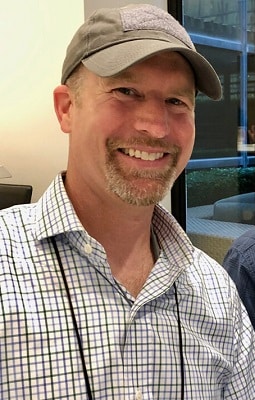
Brian Andrews is a US Navy veteran, nuclear engineer, and former submarine officer. He graduated from Vanderbilt University with a degree in psychology, holds a Master’s in business from Cornell, and is a Park Leadership Fellow. He is a principal contributor at Career Authors, a site dedicated to advancing the careers of aspiring and published writers: www.careerauthors.com.
Q: What sparked the idea for this latest story in the series?
Brian: This is the fourth book in the series. We tend to write in a 3-book arc to open and close the plot. It was driven by what we set up in book 3 with the character evolution. We want the characters to have to make critical decisions. For the number of books in this arc we will let the characters push us to where it needs to be. There is room to grow with the current antagonists.
Q: Given how events in the book parallel real-world issues, did it feel like you were predicting the future?
Brian: We work very hard to follow geo-politics, especially as military veterans we tend to keep up with what is happening. We have been fascinated by decades of Iran’s seemingly unchecked ability to have “false flag” operations. We wanted to play it out. It is terrifying that Iran has the money and connections to possibly make the scenarios we put in the book happen. It is not uncommon for us to push the world to the brink of war in our books.
Q: The plot highlights some striking similarities to real-world events—like the Abraham Accords unraveling, the Gaza tunnels, and Iran’s nuclear ambitions. Was that intentional?
Brian: Yes, the plot mirrors the real world. I do believe people would have to bury their head in the sand on purpose to not see all the overt fingerprints showing the connection between what is happening in Gaza, what is happening with Hamas, what is happening with Hezbollah, and the role of Iran in all of that. Someone would have to be willfully ignorant to not see the players are funded by Iran. We did not know when we started to write this book what would happen on October 7th, but it should not be a shock. These are terrorist states that have as their mantra wiping out Israel. The primary antagonist in this story is Iran. I think Hamas and Hezbollah would basically not exist without Iran. They do not have other partners with the weight, might, and money that Iran has. Our writing procedure is ‘what if’ and in this story the ‘what if’ pertains to the regime change in Saudi Arabia manipulated by Iran.
Q: Would you say the three key subplots are Whitney and the Saudis, the missile threat, and Iran’s nuclear ambitions?
Brian: Yes, I agree these were the three subplots. Each of the subplots is linked to a character evolution. Whitney in the last couple of books was left in a fragile state because she has been through a lot. She is trying to get back in the groove to be the brilliant analyst that she is. We wanted readers to appreciate the inherent danger of that job. In Special Operations these types of professionals are in harm’s way, and we wanted readers to appreciate that through Whitney, including the sacrifices and emotional injuries. Yet, we also want readers to see her rally and get back up like a good Navy SEAL would and continue. The DEA guy who was in multiple previous books was brought back to partner with her because Chunk is not there. Readers can see this dark side versus the more direct-action side that Chunk must deal with the missiles and the nuke threat.
Q: How would you describe Khalid, the Saudi character?
Brian: He uses wealth, influence, and privilege. He is considered a moderate who works with the West. He is pragmatic and forward thinking. He probably does not love the West but is smart enough to know what is best for his people: to have global relationships that serve his nation and help to grow it economically. He possibly would have put his ideological views aside to do what is best for this country.
Q: What about his brother, Faisal?
Brian: He is smug, wants to be thought of as powerful, controlling, arrogant, a liar, has contempt for women, and evil. He is manipulated by someone from his college days. He is agnostic politically until the right demon started to whisper in his ear, ‘what if.’ He only cares what is best for him, to seek power and prestige. He has a puppet master behind the scenes, and he is a weak person. This is played out in the real-world history.
Q: How did you approach writing the Iranian antagonist, Reza?
Brian: He is confident, cautious, deliberate, wants to be a power player, and manipulative. He underestimates the American will that they will not have the stomach to play the long game and make the sacrifices necessary for the world peace. They underestimate Israel’s ability to do whatever is necessary to protect their country. In this story we combined a joint special operation task force between Israel and America that was an unstoppable force that the Iranians cannot compete with.
Q: Who is Princess Ramia, and what does she represent in the story?
Brian: Idealist, moderate, realist, thoughtful, and helpful. She is pragmatic and what drives her is how she cares for her country. Her decisions are based on what she truly believes is best for her country. She is a fun character. She has a lot of goodness and soul.
Q: What is the core message you hope readers take from this book?
Brian: The problem with Iran is that there is leadership there that is not interested in growing the wealth of their nation or their people. They are interested in an ideology they serve. In general, the Iranians are a patriotic, loving people. Those here in the US now refer to the country as Persia, not Iran, because they remember how it could have been. In most countries most of the people are not what is seen on the news. They love their country and want what’s best for it.
Q: Where is the relationship between Whitney and Chunk headed?
Brian: They both have regrets. He has built a wall. She feels he has gone overboard with his ‘professionalism.’ It is dangerous for them to have a personal relationship, something they both want. Since we have worked in those communities, we want people to understand what that step would have for the unit, the team, and the national security. There probably could be some paths in which a relationship could be maneuvered where readers can possibly see it in future books or maybe not.
Q: You reference a Ben Franklin quote that feels in line with the “trust but verify” mentality. Can you speak to that?
Brian: You are referring to, “Believe none of what you hear, and half of what you see.” This is easy to discern. He has one click bumper sticker quotes. This was not an endorsement of Ben Franklin but having this quote as a header into the storyline, don’t always believe your eyes. This book had a false flag operation, so the quote fit perfectly.
Q: There was another Ben Franklin quote. Did that reflect a character death?
Brian: That quote was, “Fear not death for the sooner we die, the longer we shall be immortal.” All our books are about honoring the sacrifice made by our service members and their families. This is reminiscent of some who we served with. This was put in to give a shout out to the personal and family sacrifices made by our warriors.
Q: Is there a possibility of a TV or film adaptation?
Brian: “Tier One” will be optioned by Legendary Television. We have the producers, a show runner, and a writer. This one is just about done. “Shepherds” is still in development for TV. Four Minutes is in development for a feature film. We have multiple projects under development for film and television with major motion picture studios and producers including Legendary Entertainment, PictureStart, Walden Media, Imagine Television, Sony, Fifth Season/Endeavor Content, Hutch Parker Entertainment, and Marc Evans Productions.
Q: What upcoming books can fans look forward to?
Brian: This year four books will or have come out. The fourth book in the Shepherds series came out in April, titled Dark Rising. The plot has the leader of the Dark Forces finally taken out, but the power vacuum is filled by a dark nefarious force who is kidnapping children in Haiti.
The Tier One book will be out in late fall, titled Adversary. It will continue the arc including the relationship between John Dempsey and his son Jake. The plot continues where the last book, Ember, left off. A Chinese agent was helping the terrorist organization al Qaeda that was responsible for the bombing that killed President Warner and the Indian Prime Minister. Richard Wang of the task force is kidnapped so it’s about trying to figure who took him and how to thwart the Chinese and the terrorists.
In December the third installment of the Tom Clancy series will be out titled Executive Power. Katie Ryan’s brother Kyle will be featured. Katie is an intelligence officer, Jack Ryan Jr is an operative, and Kyle is a Naval Academy graduate that does something technology driven. The plot setting is the West Coast of Africa where there is a coup and forces the President to make a choice between putting country first or family first. In this book the Marines are brought to front.
False Flag, Sons of Valor book IV, by Brian Andrews and Jeff Wilson deliver another riveting thriller. This one is ripped from the headlines. They use their professional experience to write modern military thrillers that portray modern warfare in realistic scenarios. Andrews is a US Navy veteran, nuclear engineer, and former submarine officer, while Wilson served numerous tours in Iraq and Afghanistan as a Navy combat surgeon, deploying with an east coast-based SEAL Team.
As with many of their books, readers see how high-stake missions use both military operatives and intelligence analysts to achieve successful missions. But the novels also show the loyalty, sacrifice, and bond that each Special Forces operators have for each other.
This plot takes off from page one when the Crown Prince of Saudi Arabia is brutally murdered by his power-hungry brother, Faisal, with the Israeli government becoming the prime suspect. The three sub-plots show how all the pieces are in play when, to get to the bottom of it, Gold Squadron must split up. Lieutenant Keith “Chunk” Redman leads a team of Israeli operatives, sniper Nick “Saw” Sawyer is enlisted to stop the Iranian missiles and intel analyst Whitney Watts, heads into the belly of the beast itself, the Royal Palace in Saudi Arabia, where she must risk her life to uncover the truth about the Crown Prince’s murder. The team must quickly uncover the truth before Iran achieves its goal of eliminating Israel and plunging the world into WWIII.
This is another powerful installment where it appears that Andrews and Wilson can predict the future. Readers will hold their breath as they turn each page.

